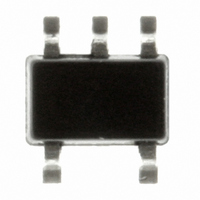STCL132KWDEAW89 STMicroelectronics, STCL132KWDEAW89 Datasheet - Page 7

STCL132KWDEAW89
Manufacturer Part Number
STCL132KWDEAW89
Description
IC OSCILLATOR 32,768HZ SC70-5
Manufacturer
STMicroelectronics
Type
Oscillator, Siliconr
Series
STCLr
Datasheet
1.STCL132KWDEAW89.pdf
(20 pages)
Specifications of STCL132KWDEAW89
Frequency
32.768kHz
Voltage - Supply
2.7 V ~ 3.6 V
Current - Supply
85µA
Operating Temperature
-30°C ~ 85°C
Package / Case
SC-70-5, SC-88A, SOT-323-5, SOT-353, 5-TSSOP
Count
*
Product
XO
Supply Voltage
1.65 Volts to 1.95 Volts
Load Capacitance
12 pF
Termination Style
SMD/SMT
Minimum Operating Temperature
- 30 C
Maximum Operating Temperature
+ 85 C
Dimensions
1.8 mm W x 1.8 mm L
Height
0.8 mm
Mounting Style
SMD/SMT
Lead Free Status / RoHS Status
Lead free / RoHS Compliant
Other names
497-8382-2
Available stocks
Company
Part Number
Manufacturer
Quantity
Price
STCL132K
3
3.1
3.2
Note:
3.3
Operation
Use of the STCL132K silicon oscillator device is very simple. Once power is applied to V
pin, a CMOS-compatible square wave output signal is provided on the F
active mode the Chip Enable (CE) input pin must be at a logic high level).
Chip enable
This feature allows the user to stop the clock and significantly reduce the current
consumption when the application is put into power saving mode.
When used to clock the microprocessor in place of a crystal, the need for chip enable input
stems from a difference in the way microprocessors normally disable their clock. In the case
of a crystal or ceramic resonator, when going into power saving mode, the processor simply
opens the internal Xtal inverter feedback which results in stopping the crystal oscillations;
however in the case of the silicon oscillators this would not work and the oscillator would
continue to run. So in order to use this feature, one of the microprocessor's output pins must
be configured to control the silicon oscillator's Chip Enable (CE) input, see typical
application circuit diagram in
Transition to disable
At the moment when the Chip Enable (CE) input goes low, the oscillator's output F
immediately go low; then during the disable period the output remains low.
For advanced microprocessor applications, other disable modes can be made available as
a product option (F
additional cycles before going low to allow the processor to complete the pipelined
instructions, etc.). Also, a product option with output in a high-impedance state to allow the
system to alternate between several oscillators connected in parallel can be made available.
Contact local ST sales office for availability.
Fast startup and stable wakeup from disable
The total startup time until oscillations internally stabilize and remain within specifications is
typically 90 µs, i.e. shorter than duration of the first three periods of the generated output
signal, see
wakeup from disable a first valid period of the output signal occurs on the F
within the specified frequency and duty cycle range (in the meantime the output remains
low). This is in comparison to typically milliseconds for crystal oscillators.
Section 5: DC and AC
OUT
completes the last clock period, and then remains low or provides 32
Figure
parameters. This means that 90 µs after power-on or
2.
OUT
OUT
output pin (in
pin and is
Operation
OUT
will
7/20
CC













